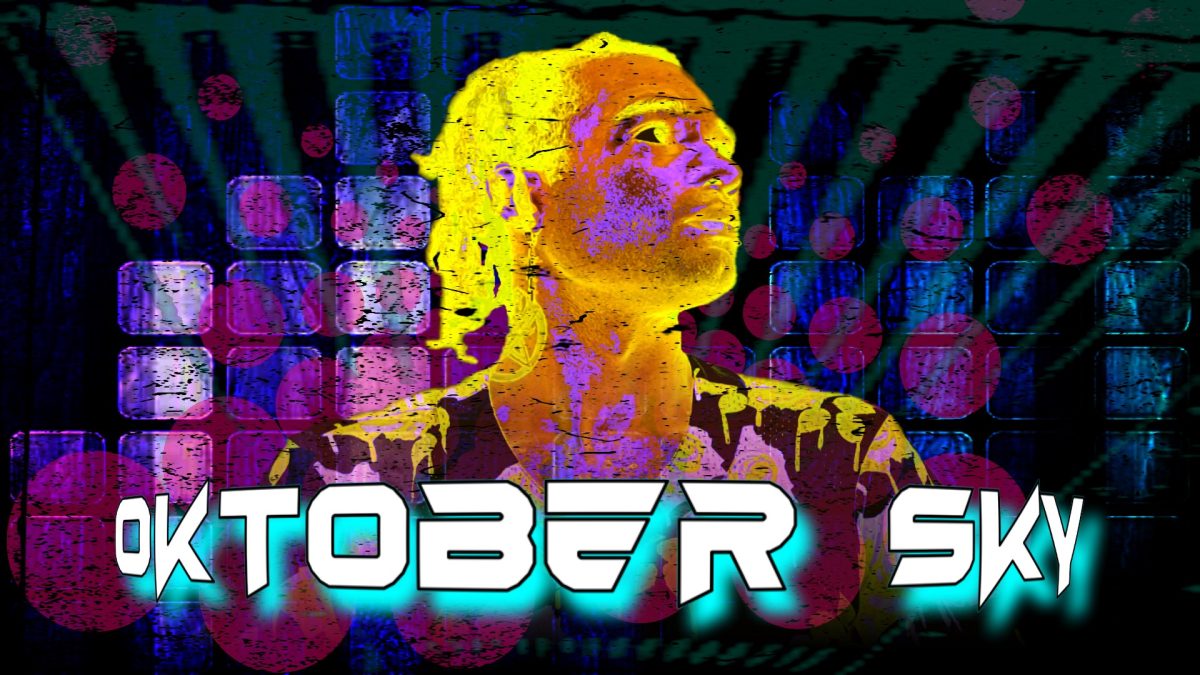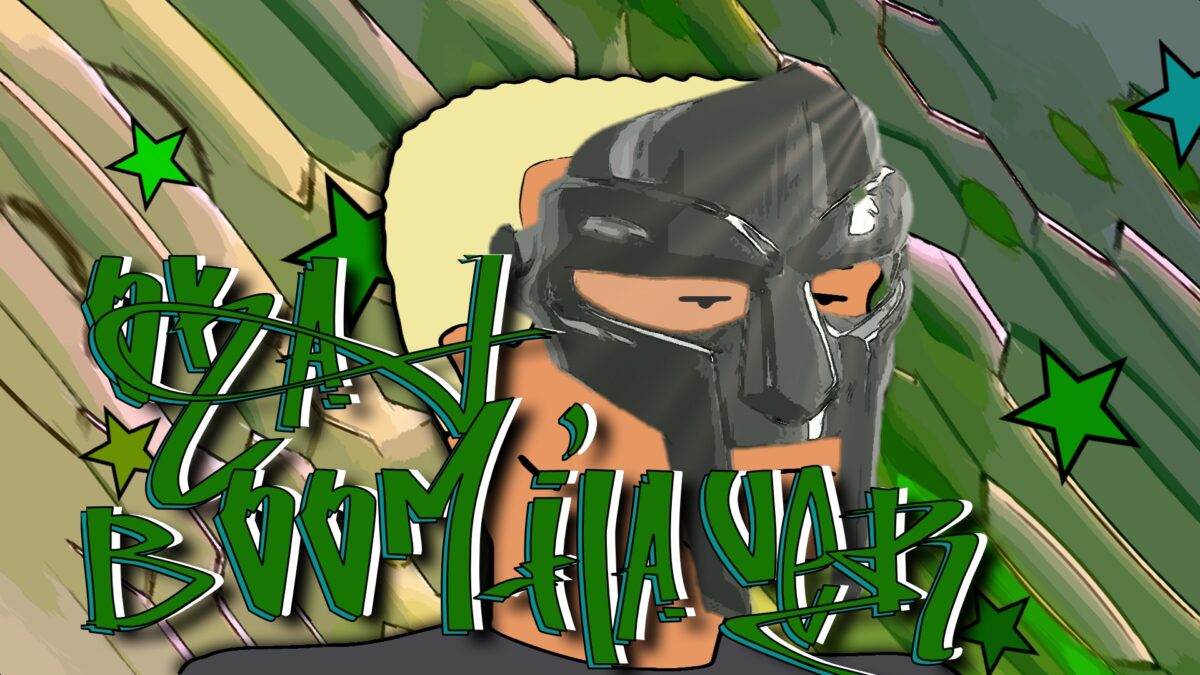While his style will always be uniquely his own, his dream has been no different than many of you audio players out there; gaining traction with the masses. Though, for him, this aspiration came with the exception of one caveat, that he arrive with a certain musical sympathy. Off the rails early on, Tylar Cash (a.k.a. Oktober Sky) lived a life that wasn’t contained by the traditional barriers that prop the rest of us up as children. The yard and the white picket fence passing him by, he was corralled with foster care and group homes. After moving from his birthplace of Modesto, California to Dexter, Missouri, his sense of longing was replaced with the quest of belonging. But by now the parameters had changed. At twelve years of age, he stood in that middle ground between childhood and adolescence, observing all the while the goings-on around him. He internalized his questions and emotions, revealing them only to a notebook in which he would constantly write. One might liken this to passive-aggressive expression. Outside of its cover, he tried to remain well-mannered and stay out of trouble. But within it, he could scream. He could poetically verse the things no one wanted to hear. And when he read them back, he understood it all. Rap music was prevalent at the time. Creative writing would teach him cadence and allow him to build and destroy worlds and the barriers within them. But by thirteen, he would be in a group home. And with less privacy and more proscriptions, that notebook would be taken away. Strong will, an inquisitive nature, and a desire to escape reality led him to disappear into books as a result. This opened his eyes to fantasy. Not so much for the sake of escapism, but as a means of artistic expression. Visualizations became similes and situations were captured as metaphors.
With the atmospheres constantly changing around him, he was exposed to many different forms of music. He could see the beauty in them all. Classic rock and heavy metal possessed as much worthiness with him as rap and electronic dance music. Each with their own styles of grammar and expression. When he was able to free himself from the grips of the group home, he bought some equipment and began learning how to record himself. Still searching for his own voice, he rapped about the things around him. But these things sounded out like so many of the typical rap songs of today, guns, drugs, women, cars and fast cash. One self-imposed bar he set for himself was to deliberately stray away from convention. Sounding like someone else was something he couldn’t live with. So, to measure up to this, he would constantly explore. A change in his cadence, a twist on the subject matter, singing… singing! He would land on an alternation between rapping verses and singing the choruses. And he was already veering toward a multi-genre approach of rap, pop, rock, and emo. The “musical sympathy” I spoke of earlier was born out of his personal experiences. There were a lot of somber feelings associated with his childhood. And of the many people he met along the way, some in his own predicament, he felt it necessary to touch on their lackluster reality. But never-before leaving it with a bit of a shine. Put simply, he understood and respected the trials of others because he lived them. But he believed it a good cause to insert a bit of optimism into his written realism, even if that sometimes meant a touch of fantasy.
Anxious to evolve, one day he Googled “what cities do people advance in music?” New Orleans, believe it or not, was number three out of ten. So, he packed all his things and moved to New Orleans. He has brought with him a message of mental health. And he views his multi-faceted style as an advantage. He hopes that it will speak to his audience as it does to him, ever-changing but always positive. The move has delivered him from the ill-willed surroundings of Missouri and the subject matters that came from there in his music. He has aligned himself with producer Rahul Borkar and video director Opius Mercury to release a collection of singles, each with their own music video. For the first time he feels like he’s in an environment that suits him. With this newfound liberty, he has felt free enough to do things like insert rock songs into a rap show. This allows him to try out his varying styles. He says he is not aware of any markets more conducive to this variance encapsulated into one presentation. I think we can all cite this as sometimes problematic territory. Cross-over styles can make some feel hesitant to go along with those who create it. Many people, especially younger crowds, often feel an allegiance of some sort to one genre or another. It is a utility by which they define themselves, and so must pass muster through a distinct set of principles and mores. Nevertheless, the music he makes now has predominantly more rock overtones. And he still does retain rap elements such as flows, tempo, and some looping melodies. He explains how when he’s writing, he’s in a depressive mode. But once he has written down his emotions, he feels at peace with it. Oddly enough, it is difficult for him to express himself verbally, but putting words into a song comes more natural without losing the thoughts and emotions he is trying to convey. I believe this to be a common sentiment among musicians. These days, he feels the challenges of being a solo artist. He wants the camaraderie and capability of a full band. It’s funny how a music scene such as ours can both congeal and isolate at the same time. But this too, I believe, is common territory. We did talk in-depth about his childhood and the places he has been in life, as well as his goals and methods to which his music videos and lyrics aim. You can hear our interview with Tylar Cash (a.k.a. Oktober Sky) on our podcast by clicking your favorite platform below. And please, help propel this artist’s journey forward by stopping by one of the destinations in the Linktree and giving him a like or follow. Once you see what he’s managed to do thus far with his music and videos, you won’t be disappointed. If you’re a musician looking to explore soundscapes within the realms of rap/ rock, pop, or emo-rock, you should consider reaching out to him as well. Forming connections or passing a kind word can go far these days.
Author: David Trahan
Oktober Sky’s Linktree: https://linktr.ee/oktobersky999?utm_source=linktree_profile_share<sid=31990f69-2da3-4084-8c7d-1986e0917074




















